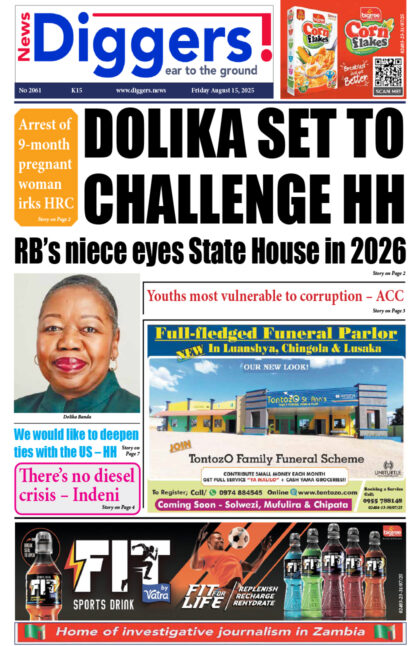Home Affairs Minister Steven Kampyongo says World Refugee Day is an opportunity to reflect on the root causes of displacement and ponder what can be done to prevent it.
And UNHCR Representative Pierrine Aylara says the United Nations body is worried about xenophobic sentiments which are taking root in some countries.
Kampyongo was speaking at Lusaka’s Cosmopolitan Mall, Thursday, to commemorate World Refugee Day under the theme “Take a step with Refugees” while the African Union Theme for 2019 is “Year of refugees, returnees and internally displaced persons towards durable solutions to forced displacement in Africa”.
“It is time to reflect on the root causes of displacement and what we can do to avoid these things. This year’s theme is challenging all of us to take small and big steps in our daily lives in solidarity of refugees. The president has already set a pace for us and so we can follow suite,” Kampyongo said.
He called for stronger collaborative efforts to meet the refugees’ needs.
“As a country, we wish to call for strong collaborative efforts and commitments towards meeting the needs of refugees and finding solutions for them. We have managed to set up three refugee settlements in order to continue providing assistance and we are trying to lobby even at the highest level of the UN,” he said.
Kampyongo thanked all the partners who were helping refugees in Northern, North Western and Luapula provinces.
Kampyogo said about 10 million Euros had been injected in the three refugee settlements.
“There is no better place in this world like home, you can find a sanctuary but certainly that sanctuary cannot be equated to a place called home,” said Kampyongo.
And speaking at the same event, Aylara said UNHCR was worried about xenophobic and anti-foreigner sentiments which were taking root in some countries.
“Despite all the good practices, UNHCR is troubled by a growing anti-foreigner, xenophobic and anti-refugee narrative taking root in some countries. This narrative is against humanitarian values and principles, prevents social stability and peace. In 2016 for instance, Zambia had to deal with this ugly face of xenophobia, which sadly tarnished the great support the country had been extending to refugees over decades and since the liberation,” Aylara said.
“I am happy to notice that, here in Zambia, the country has continued to respect diversity and co-existence despite the regrettable xenophobic attack of 2016.”
She said the number of refugees in the world had gone up.
“Africa continues to host one-third of the world’s refugee population. In addition to the tradition and practice of open-door policies, countries on the continent, through the AU are vigorously pursuing various forms of durable solutions to address the forced displacement including their root causes. According to the UNHCR’s 2018 Trends Report which has just been released, the global population of forcibly displaced people grew substantially from 68million in 2009 to over 70 million in 2018. Most of this increase took place between 2012 and 2015, as a result of the Syrian conflict,” Aylara said.
“Meanwhile, several conflicts in other areas also contributed to this rise, especially in the Middle East, Iraq and Yemen, the Democratic Republic of the Congo (DRC), South Sudan, as well as the massive flow of Rohingya refugees to Bangladesh. Of particular note in 2018 was an increase in the number of displaced people due to internal displacement in Ethiopia and new asylum claims from people fleeing Venezuela. Overall, the refugee population under UNHCR’s mandate has nearly doubled since 2012.
The representative noted that the community plays a major role in welcoming refugees.”
























